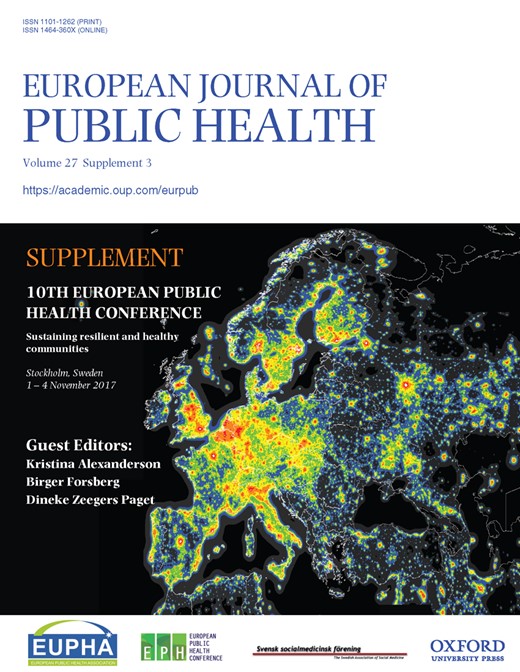-
PDF
- Split View
-
Views
-
Cite
Cite
Organised by: WHO EURO, EUPHA (CHR), 1.K. Skills building seminar: Prevention and control of noncommunicable ciseases in WHO/Europe region: demonstrating the impact of public health efforts through the Natural Experiments Study project, European Journal of Public Health, Volume 27, Issue suppl_3, November 2017, ckx187.037, https://doi.org/10.1093/eurpub/ckx187.037
Close - Share Icon Share
Chair: Iveta Nagyova, Slovakia
Contact: iveta.nagyova@upjs.sk
Background
All countries working to prevent and control noncommunicable diseases (NCDs) face one particular problem, namely, to find credible evidence that the public health interventions being conducted are actually working. The traditional logic framework used in public policy often starts from the assumption that some evidence-based policy is being adopted, that resources are invested in that policy, and success is measured by the actual adoption of the policy and possibly by gathering some evidence of its outputs.
Natural experiments studies propose to go one step beyond that and to investigate what are the impacts on society attributable to a policy after it has been adopted and enforced. Thus, for example, after banning trans-fatty acids in food products, a natural experiment study would gather evidence on any changes in mortality from cardiovascular disease. While traditional evaluation would check whether the new foods being produced actually are free of synthetic trans-fats, a natural experiments study would connect the ban to any specific reduction in mortality associated with the enforcement of the ban.
Expanding the number of natural experiment studies will deliver an accumulating collection of rigorously evaluated examples of country action in the prevention and control of NCDs and will expand the global evidence base on the impact of the most effective interventions in different settings. Such evidence, because of the difficulties involved in conducting studies such as these, is very rare but exceedingly valuable.
Aim
The aim of this workshop is to contribute to capacity building in the use of natural experiment methodologies. Specifically:
Introduce participants to the research design and methods of natural experiments;
Share examples of natural experiment studies performed within the context of a WHO/Europe project;
Provide a forum for discussions on the advantages and limitations of using such methods.
Workshop structure
The workshop will be structured as follows:
Introductory presentation that outlines the vision for increased work on natural experiments (15 minutes).
Speaker: Gauden Galea, Director, Division of Noncommunicable Diseases and Promoting Health through the Life-course, WHO/Europe.
One practical lecture on the methods and design considerations for natural experiments (20 minutes).
Speaker: David Stuckler, University Bocconi, Italy & EUPHA pillar lead Policy.
Short presentations on the findings from countries implementing studies. (30 minutes).
Question and answer sessions on methods, advantages and limitations.
Key messages:
Greater attention to rigorous evaluations of policy impact in terms of better noncommunicable disease outcomes is needed to demonstrate the positive impact of public health efforts.
Innovative methods exist to support natural experiment-style evaluations and should be more widely used.




Comments